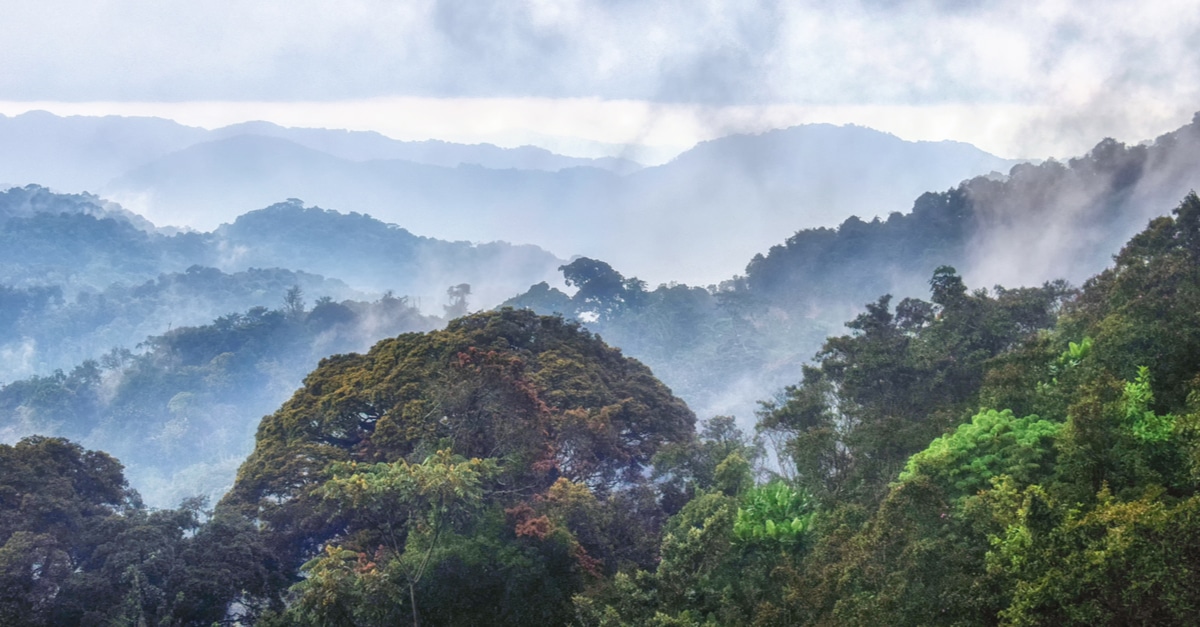
Ecological diversity is a fascinating and multifaceted concept that plays a crucial role in maintaining the balance and resilience of our planet’s ecosystems. It refers to the variety and abundance of species, as well as the interactions between them, within a given environment. From the depths of the oceans to the highest mountain peaks, ecological diversity is present in every corner of our world, shaping the intricate web of life that sustains us all.
In this article, we will delve into the enigmatic realm of ecological diversity and explore 12 captivating facts that highlight its importance and show the wondrous complexity of our natural world. From the staggering number of species on Earth to the intricate relationships that exist between them, these facts will inspire a deeper appreciation for the beauty and significance of ecological diversity.
Key Takeaways:
- Ecological diversity, or biodiversity, is crucial for maintaining a healthy planet. The Amazon Rainforest and coral reefs are biodiversity hotspots, but they are threatened by factors like climate change and invasive species.
- Protecting ecological diversity is essential for preserving the balance of life on Earth. Everyone, including you, can contribute to conservation efforts through small actions like recycling and supporting local initiatives.
The Amazon Rainforest is the epitome of ecological diversity.
The Amazon Rainforest is home to an estimated 40,000 plant species, 1,300 bird species, and millions of other creatures. It is often referred to as the “lungs of the Earth” due to its role in producing approximately 20% of the world’s oxygen.
Coral reefs are biodiversity hotspots.
Coral reefs are not only mesmerizingly beautiful but also house an incredible array of marine life. Despite covering less than 1% of the ocean’s floor, they support around 25% of all marine species, making them one of the most diverse ecosystems on the planet.
The extinction rate is alarmingly high.
Due to various factors like habitat destruction, pollution, and climate change, species are going extinct at a rate estimated to be 1,000 times higher than the natural extinction rate. This loss of biodiversity is a major concern as it disrupts ecosystems and reduces their resilience.
Rainforests are biodiversity hotspots.
Tropical rainforests are incredibly biodiverse, hosting a wealth of unique plant and animal species. They cover only 6% of the Earth’s surface but are estimated to be the habitat for around 50% of all known species.
Biodiversity contributes to human well-being.
Ecological diversity provides numerous benefits to humans, including food, medicine, and clean water. Many pharmaceutical drugs are derived from natural sources, and indigenous communities have extensive knowledge of plant-based remedies.
Invasive species threaten ecological diversity.
When non-native species are introduced into new ecosystems, they can outcompete native species and disrupt the natural balance. These invasive species pose a significant threat to ecological diversity and can lead to the extinction of native species.
Ecological diversity supports ecosystem services.
Ecosystem services are the benefits that ecosystems provide to humans, such as pollination, soil fertility, and climate regulation. The greater the ecological diversity, the more efficient these services become.
Climate change impacts biodiversity.
Rising temperatures and changing weather patterns have severe consequences for ecological diversity. Species may struggle to adapt to rapidly changing conditions, leading to population declines and potential extinctions.
Ecological diversity is essential for ecosystem stability.
A diverse ecosystem is more resilient to disturbances. The presence of multiple species allows for a better distribution of resources, enhances ecosystem productivity, and reduces the risk of ecological imbalance.
The loss of a single species can have cascading effects.
Each species in an ecosystem plays a vital role. When one species becomes extinct, it can disrupt the delicate balance among other species, potentially leading to more extinctions and a decline in overall ecological diversity.
Conservation efforts are crucial for preserving ecological diversity.
Protecting and preserving natural habitats, implementing sustainable practices, and raising awareness about the importance of ecological diversity are essential for safeguarding our planet’s biodiversity for future generations.
Everyone can contribute to protecting ecological diversity.
From small actions like recycling and reducing single-use plastics to supporting local conservation initiatives, every individual can play a part in preserving ecological diversity. Together, we can make a difference.
The 12 Enigmatic Facts About Ecological Diversity highlight the significance of our planet’s rich variety of life and the urgent need to protect and conserve it. By understanding and appreciating the wonders of ecological diversity, we can actively contribute to building a sustainable future for all living beings.
Conclusion
Ecological diversity is a fascinating subject that encompasses the vast array of life forms and their interactions within various ecosystems. From the intricate web of relationships between organisms to the dynamic processes that shape our planet, studying ecological diversity allows us to understand the complexity and interconnectedness of life on Earth.
By exploring the 12 enigmatic facts about ecological diversity, we have gained insight into the remarkable adaptations, species interactions, and patterns that exist within our natural world. From the incredible biodiversity of tropical rainforests to the delicate balance of marine ecosystems, each fact highlights the importance of preserving and conserving our planet’s rich ecological heritage.
Understanding and valuing ecological diversity is not only crucial for scientific research, but also for our own well-being and the sustainability of our planet. By appreciating the intricate beauty and complexity of nature, we can strive to protect and maintain the delicate balance of ecosystems for future generations.
FAQs
1. What is ecological diversity?
Ecological diversity refers to the variety of species, their interactions, and the different habitats and ecosystems they inhabit. It encompasses the complexity and interconnectedness of life on Earth.
2. Why is ecological diversity important?
Ecological diversity is essential for the proper functioning of ecosystems and their ability to provide us with vital services such as clean air, water, and food. It also contributes to the overall resilience and stability of our planet.
3. How is ecological diversity measured?
Ecological diversity can be measured through various methods, including species richness (the number of species in a given area), species evenness (the relative abundance of each species), and measures of genetic diversity within populations.
4. What are the main threats to ecological diversity?
Human activities such as deforestation, habitat destruction, pollution, climate change, and overexploitation of natural resources pose significant threats to ecological diversity. These factors can lead to the loss of species, disrupt ecosystems, and reduce overall biodiversity.
5. How can we protect and conserve ecological diversity?
Protecting and conserving ecological diversity requires a combination of efforts, including the establishment of protected areas, sustainable resource management practices, conservation of key habitats, responsible consumption, and raising awareness about the importance of biodiversity.
6. How does ecological diversity benefit humans?
Ecological diversity provides humans with crucial ecosystem services such as clean air, water purification, nutrient cycling, pollination, and climate regulation. It also contributes to the development of new medicines and technologies derived from natural products.
Ecological diversity is a captivating subject, but have you ever wondered about the natural wonders right in your backyard? From the lush forests of Somerville, Massachusetts to the vibrant wetlands of Stockton, California and the stunning coastal habitats of Galveston, Texas, local wildlife and natural reserves offer a wealth of fascinating facts and insights. Explore the unique ecosystems and creatures that call these places home, and gain a deeper appreciation for the incredible biodiversity that surrounds us. Get ready to be amazed by the hidden gems waiting to be discovered in your own community!
Was this page helpful?
Our commitment to delivering trustworthy and engaging content is at the heart of what we do. Each fact on our site is contributed by real users like you, bringing a wealth of diverse insights and information. To ensure the highest standards of accuracy and reliability, our dedicated editors meticulously review each submission. This process guarantees that the facts we share are not only fascinating but also credible. Trust in our commitment to quality and authenticity as you explore and learn with us.


